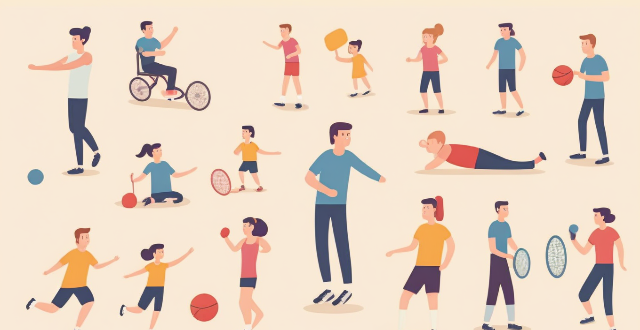Competitive sports play a significant role in shaping individuals' social development and enhancing their teamwork skills. This essay explores the various ways in which competitive sports influence these aspects of personal growth, including increased social interaction, building confidence and self-esteem, learning to deal with success and failure, collaboration, communication skills, leadership development, and responsibility and accountability. These skills are not only valuable in sports but also transferable to various aspects of life, making competitive sports an essential component of personal growth and development.

Competitive Sports Influence on Social Development and Teamwork Skills
Introduction
Competitive sports play a significant role in shaping individuals' social development and enhancing their teamwork skills. This essay will explore the various ways in which competitive sports influence these aspects of personal growth.
Social Development
Increased Social Interaction
Competitive sports provide opportunities for individuals to interact with others, both on and off the field. Athletes are exposed to diverse groups of people, including teammates, coaches, opponents, and fans. This exposure helps them develop social skills such as communication, empathy, and respect for others.
Building Confidence and Self-Esteem
Participating in competitive sports can help individuals build confidence and self-esteem. Achieving success in sports can boost an athlete's self-image and make them feel more capable of overcoming challenges in other areas of life.
Learning to Deal with Success and Failure
Competitive sports teach athletes how to handle success and failure. They learn to celebrate victories while also accepting defeat gracefully. This ability to cope with different outcomes is essential for personal growth and can be applied to various aspects of life.
Teamwork Skills
Importance of Collaboration
Competitive sports emphasize the importance of collaboration among teammates. Athletes must work together to achieve a common goal, whether it is winning a game or improving their performance. This collaborative effort fosters a sense of unity and encourages individuals to support each other both on and off the field.
Communication Skills
Effective communication is crucial in competitive sports. Athletes must communicate clearly with their teammates to coordinate actions during a game. This skill translates well into professional settings, where clear communication is essential for successful collaborations.
Leadership Development
Competitive sports provide opportunities for leadership development. Athletes often take on leadership roles within their teams, such as captains or key players. These roles require strong leadership skills, including decision-making, problem-solving, and motivation. Leadership experiences gained through sports can be beneficial in various aspects of life.
Responsibility and Accountability
Competitive sports teach athletes about responsibility and accountability. They learn that their actions have consequences and that they must take responsibility for their performance. This understanding of accountability is essential for developing strong work ethics and contributing positively to any team environment.
Conclusion
In conclusion, competitive sports have a significant impact on social development and teamwork skills. They provide opportunities for increased social interaction, building confidence and self-esteem, learning to deal with success and failure, collaboration, communication skills, leadership development, and responsibility and accountability. These skills are not only valuable in sports but also transferable to various aspects of life, making competitive sports an essential component of personal growth and development.